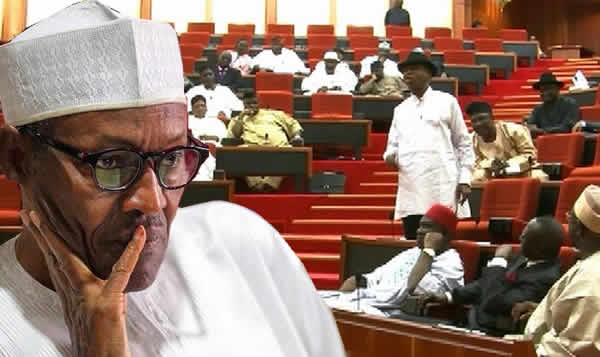
President Muhammadu Buhari plans to submit next year’s spending plan to lawmakers on Dec. 14, according to a letter read to parliament on Tuesday, with government sources saying the 2017 budget would be 7.2 trillion naira ($23.65 billion).
Nigeria planned a 6.06 trillion-naira budget for 2016 but has struggled to fund it. Attacks on energy facilities in the Niger Delta region since January have reduced oil output, at one stage by more than a third, cutting revenue from crude sales.
In a letter to lawmakers read to parliament on Tuesday, Buhari said he wanted to present his budget plans to a joint session of both chambers of parliament on Dec. 14. It did not provide details of the spending plan.
“Mr President will be presenting a budget proposal of 7.28 trillion naira on a benchmark of $42.5 hinged on a daily oil production of 2.2 million barrels per day,” said a senior civil servant, who did not want to be named.
A second senior civil servant, who also wanted to remain anonymous, said those were the figures in the spending plan.
Last month, lawmakers said the 2017 draft budget framework, used to draw up the final spending plan, was based on unrealistic assumptions about oil production and the currency exchange rate.
“We believe that with the level of ongoing negotiations and consultation going on with the people of the Niger Delta we can achieve and sustain that production level for the year,” the civil servant said.
The spending plans must be agreed by parliament before being sent back to the president to be passed into law.
It could be months before a final budget is passed into law. The 2016 budget became law in May after being delayed by several months by wrangling between the government and the Senate, the upper house of parliament.
Budget Minister Udoma Udo Udoma last week said the cabinet had approved next year’s budget, although he did not provide further details.













